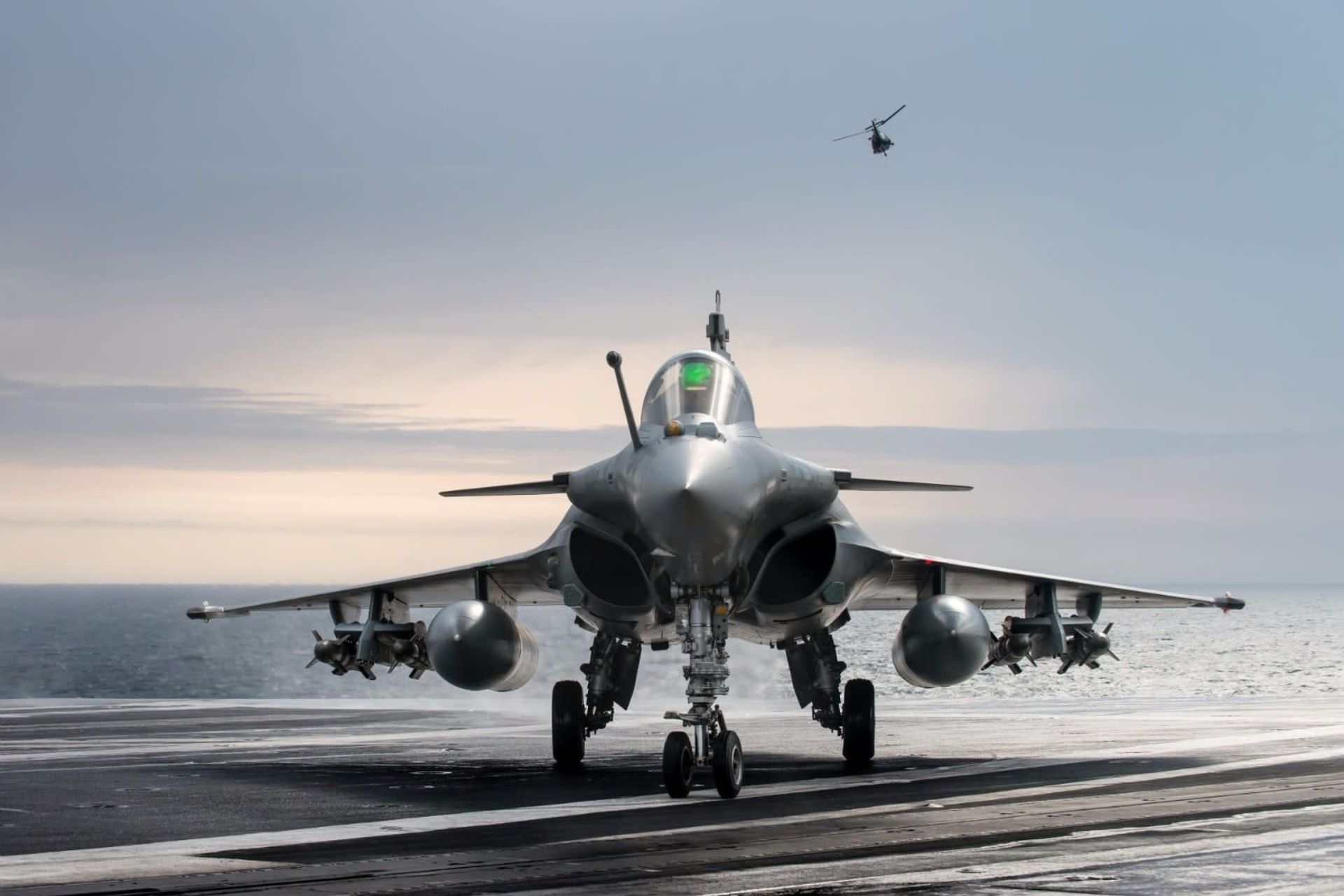Breaking News
France and Serbia Successfully Conclude Negotiations for Sale of 12 Rafale Fighter Jets.
Dassault Aviation has successfully concluded negotiations for the sale of 12 Rafale fighter jets to Serbia, marking a significant advancement in bilateral relations between France and Serbia, as reported by LaTribune. This agreement not only strengthens military cooperation between the two countries but also highlights their growing strategic partnership. Finalized earlier this summer, the deal is seen as having broader geopolitical implications, particularly given the ongoing tensions between Serbia and Kosovo.
Follow Army Recognition on Google News at this link

The Rafale is known for its "Omnirole" capabilities, enabling it to perform a wide range of missions, including air superiority, ground support, reconnaissance, and nuclear deterrence. (Picture source: Dassault Aviation)
The Dassault Rafale is a multi-role fighter aircraft with twin engines and a delta wing, designed and produced by Dassault Aviation. Initially conceived in the late 1980s, its production officially began in December 1992, although it was briefly halted in 1995 due to political and economic uncertainties. Production resumed in 1997, and the first Rafale M, designed for naval operations, flew in 1999. The aircraft entered service with the French Navy in 2002 and the French Air Force in 2004. To date, 120 Rafales have been officially ordered, with the aircraft serving in both land-based and carrier-based operations for the French military.
The Rafale is known for its "Omnirole" capabilities, enabling it to perform a wide range of missions, including air superiority, ground support, reconnaissance, and nuclear deterrence. It is equipped with advanced avionics, including the SPECTRA electronic warfare system, and features multi-sensor data fusion for enhanced situational awareness. The aircraft can reach a maximum speed of 1,800 km/h and has a maximum range of 3,700 km. With 14 hardpoints capable of carrying various armaments, including air-to-air missiles, precision-guided bombs, and anti-ship missiles, the Rafale offers exceptional versatility and survivability in both conventional and asymmetric warfare scenarios.
The agreement is expected to be officially confirmed during the upcoming visit of French President Emmanuel Macron to Belgrade on August 29 and 30, 2024. Macron, who played a central role in orchestrating this diplomatic and commercial operation, is set to formalize the contract during his visit. His involvement underscores the importance of this sale, both in terms of France's technological expertise and in strengthening its partnership with Serbia.
The timing of the deal is also significant within the context of European diplomacy. In mid-July, President Macron praised Serbian President Aleksandar Vučić's commitment to normalizing relations with Kosovo, in line with European mediation efforts. Macron called for the full implementation of the Brussels-Ohrid agreements, aimed at easing tensions between Serbia and Kosovo. This broader diplomatic context adds weight to the Rafale deal, reflecting France's strategic interests in the region.
The negotiations, concluded earlier in the summer, were influenced by these geopolitical considerations. It is now up to President Macron to give the final approval for the contract between Belgrade and the French aircraft manufacturer. For several months, Macron has been actively advocating for this sale of 12 Rafale jets, which is expected to solidify France's role as a key defense partner for Serbia.


























